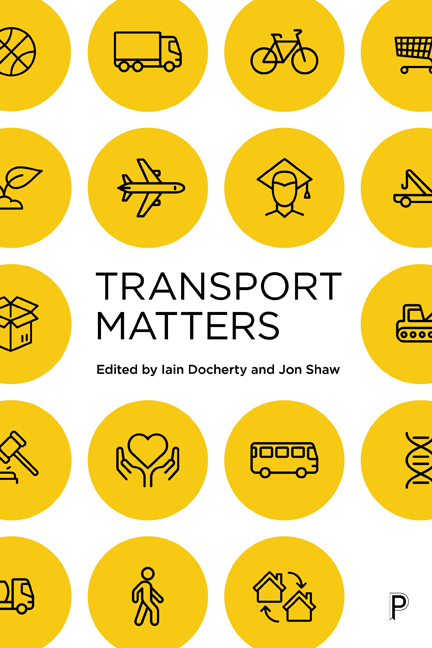8 - Health, Wellbeing and Quality of Life
Published online by Cambridge University Press: 03 March 2021
Summary
Introduction
Following years of disconnect in UK public policy (Royal Town Planning Institute (RTPI) 2013), there is growing recognition of the importance of transport for health and wellbeing. Indeed, the explosion of interest in the health potential of active travel among health and transport researchers, policy makers and advocacy groups makes this an exciting time to study interactions between transport and health. To a large extent, the focus on active travel and the health benefits associated with physical activity is related to the convergence of transport and health research around obesity (Schwanen 2016), although as we shall see physical (in)activity is only one of many complex and subtle interconnections and relationships between transport, health and wellbeing.
If we think about what really matters in transport policy, we would argue that its underlying purpose is to improve the health or wellbeing of citizens, both by extending the length and improving quality of life. Wellbeing refers to a person's subjective evaluation of how their life is going, while quality of life generally involves an objective measure of an individual's position, relative to their environment (Duarte et al 2010, World Health Organization (WHO) 1997). Why else would transport policy makers strive to promote economic growth, or reduce congestion, journey times and accidents, or bring about environmental improvements, if not to somehow make things better for citizens? In many ways, as we see throughout this book, existing transport systems already do much to make things better for health and wellbeing in society: at the population level, people have unparalleled access to employment, leisure and social opportunities. At the same time, transport systems can make things worse. In Great Britain in 2017, for example, 1,676 people died in road traffic accidents and 128,306 were injured (Department for Transport (DfT) 2018). We also see in England that over-reliance on the private car contributes to over a quarter of adults being classed as physically inactive and almost a third as obese, both conditions that are associated with increased risk of disease and early death (Health and Social Care Information Centre 2017). Furthermore, in 2015, domestic and international transport was responsible for 160 million tonnes of greenhouse gas emissions (DfT 2017a), 14 per cent of PM10 and 13 per cent of PM2.5 emissions, and was the third largest contributor to nitrogen oxide emissions (Department for Environment, Food & Rural Affairs (DEFRA) 2016).
- Type
- Chapter
- Information
- Transport Matters , pp. 177 - 204Publisher: Bristol University PressPrint publication year: 2019



